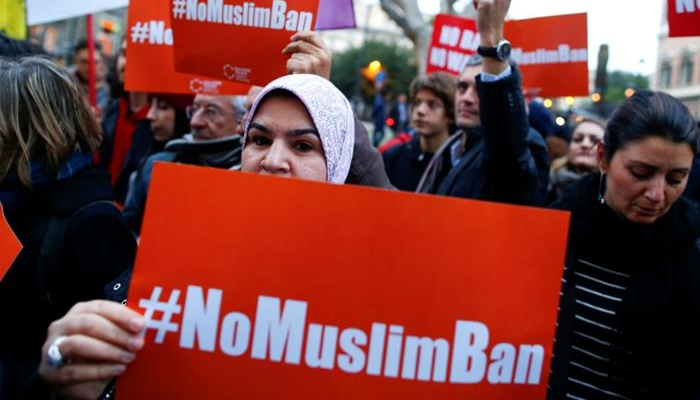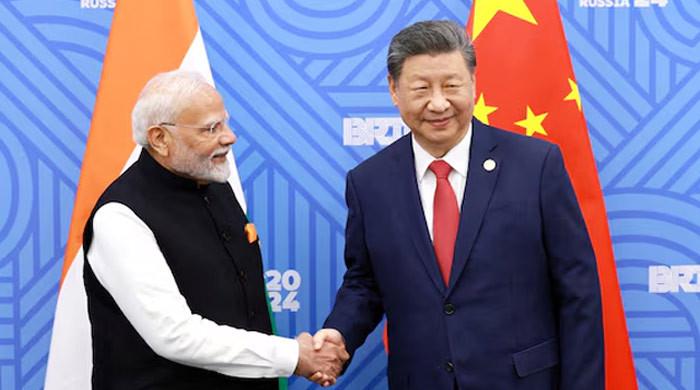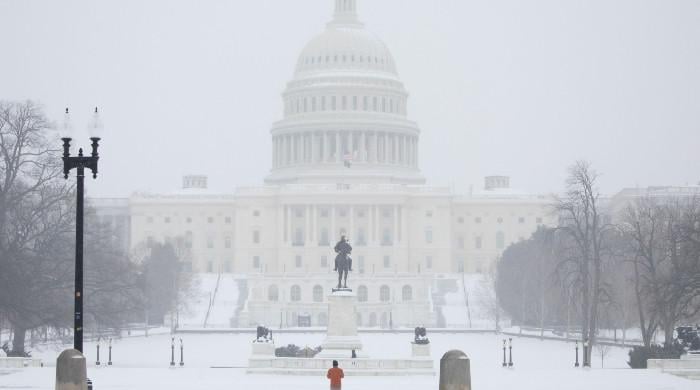Islamophobia and the 2020 Republican campaign in the US
Islamophobia — which sprang from a tragedy 18 days and 18 years ago, somehow changing the US relationship with Muslims
September 29, 2019

Islamophobia — a growing problem in the West and one that Pakistani Prime Minister Imran Khan emphasised during his UN General Assembly speech — has yet to be addressed by a single 2020 US presidential candidate whose campaigns are currently on full throttle.
Rooted deep in the American society, Islamophobia is a topic that has been missing from the presidential debates and addresses but significantly affects the Muslims living in the US. The 2020 candidates, however, have been focusing largely on domestic issues.
18 days and 18 years ago, a tragedy somehow changed the relationship between the US and the Muslims around the world.
The 9/11 attacks also drew focus on American Muslims — some faced discrimination, others were attacked, and mosques subjected to arson. While the knee-jerk reaction subsided in the two decades that followed, the narrative that fed hatred in the pluralistic society did not.
A number of ultra right-wing Republicans, including the incumbent president Donald Trump and some other 2020 hopefuls, have added fuel to the fire. Their divisive campaigns have given the needed legitimacy to those who spew venom against Muslims.
It comes as no surprise that anti-Muslim groups in the US have risen at least three-fold in number ever since Trump launched his first campaign more than four years ago.
But the American president is now seeking another bid with better chances of a re-election for he has fulfilled almost all the promises — albeit controversial — that he made in 2016, including an issuance of executive orders aimed at limiting the movement of nationals of Muslim-majority countries.
According to Jack Levin, a hate-speech expert at North-eastern University in Boston, the present-day anti-Muslim sentiment is similar to the Americans' attitudes towards the Japanese-Americans during World War II.
As per the estimates of think-tank Pew Research Center, there are 3.5 million Muslims in the US, making about 1 percent of the total population and representing the third-largest religious group after Christians and Jews. In the almost two decades that followed the 9/11 attacks, however, Muslims are poised to become the second.
It’s debatable whether the Muslims really are a genuine threat to the American values or not but, as far as electoral process is concerned, Muslims are least significant. There are only three Muslim members in the House of Representatives but the glaring irony is that their Jewish counterparts — representing two percent of the US population — stand at 34.
Above all, not a single Muslim person has secured seat in the US Senate and not one ever represented a US state as its governor. It’s for obvious reasons that in the past few years, questions have been raised about the possibility of a Muslim President in the White House.
Ben Carson, the US Secretary of Housing and Urban Development who contested as the Republican presidential candidate against Trump back in 2016, answered that question in a remarkably alarming discriminatory tone. During his campaign, he made it clear that he "would not advocate that Americans put a Muslim in charge of this nation".
Mike Huckabee, his rival, went on to spread lies, saying during his bid: "When I say single them out, I am making the observation that we have more Pakistani illegals coming across our border than all other nationalities except those immediately south of the border."
Huckabee’s numbers were utterly wrong. When faced with facts, he avoided showing any signs of regret.
Even the late maverick John McCain, who lost against former US president Barack Obama, courted the religious right. Asked if he would support a Muslim candidate for president, he said: "I just have to say in all candour that since this nation was founded primarily on Christian principles, personally, I prefer someone who has a grounding in my faith.’
Facing a strong reaction from the Jewish lobby, McCain clarified, saying: "What I do mean to say is the United States of America was founded on the Judeo-Christian values, which were translated by our founding fathers, which is basically the rights of human dignity and human rights."
McCain failed to recognise that Islam and other faiths also have their basis in human dignity and that it was the minority in almost every religion that spreads hatred and incites religious sentiments.
Republican Senator Mitt Romney, who failed to secure presidential candidacy in 2008 twice, went a step further. "Based on the numbers of American Muslims in our population, I cannot see that a cabinet position would be justified.
"But of course, I would imagine that Muslims could serve at lower levels of my administration," he said.
Romney’s statement blatantly challenged existence of merit system in the land of opportunities. Plus, it’s ironic that he made such a statement when the number of Mormons, his faith group, stood almost equal to the number of Muslims with 10 Mormons in the current Congress.
The former Massachusetts governor later tried to make up for his words, clarifying that among his cabinet members, he had several African-American individuals. Again, instead of apologising for his statement, the seemingly biased Romney compared Muslims with African-American minorities.
Such blatantly hateful behaviour of right-wing politicians since the 9/11 attacks has hardly been challenged.
Trump's personal attorney Rudy Giuliani , who eventually endorsed McCain, did not fire the notorious anti-Muslim rhetoric through his campaign. Historian Daniel Pipes wrote that the "increased stature, affluence, and enfranchisement of American Muslims … will present true dangers to American Jews.’
Giuliani, the former New York City mayor, had also overtly enjoyed endorsement from one-time presidential candidate Pat Robertson, who compared Islam to something very problematic. Even former president George W. Bush's "crusade" against the so-called "axis of evil" reminded many of a brutal history.
Over the years, the Democrats have also come under pressure to adopt a relatively stricter line. Leaders of both parties have controversially associated terrorist attacks with Islam but their hypocrisy is evident as they never equated the indiscriminate killing sprees by white supremacists with Christianity or terrorism.
For a vast number of Muslims, a suffocating scenario looms large. They believe Islamophobia should be condemned and stopped but have no coherent strategy to do that.
The new generation must be given more liberty and not be forced to live two different lives at schools and home. Without racial and gender-based discrimination, children should be allowed to visit their classmates and host them at their own homes with parents. Family-to-family relationships can build bridges.
Most of the Pakistani diaspora in the US — who take pride in being called Pakistani-Americans — only physically live in the US but their souls are stuck in their countries of origin. They want to aggressively impose the very culture from their home country in America or focus on returning to the culture they grew up in after getting dollars in their pockets.
The majority of these "Pakistani-Americans" enjoy liberal values abroad but remain conservative for the other half of their lives. In many cases, even their citizenship ends up landing them back in their ancestral countries.
But this group only adds to the misery of those who genuinely wish to make America their first, last, and only home.
The politically-cognisant Muslims, on the other hand, have already taken the first step by being an active part in the campaigns of like-minded Democrats and Republicans alike. They donate dollars to mainstream politicians and mobilise families to come out from their drawing-room discussions to vote.
Some of them have even plucked up courage to stand for a public office, believing that this is the only way to influence policies. While two entire generations of immigrant Muslims have lost this opportunity, it may not be a failure if the young ones lay a solid foundation for a genuine integration.











